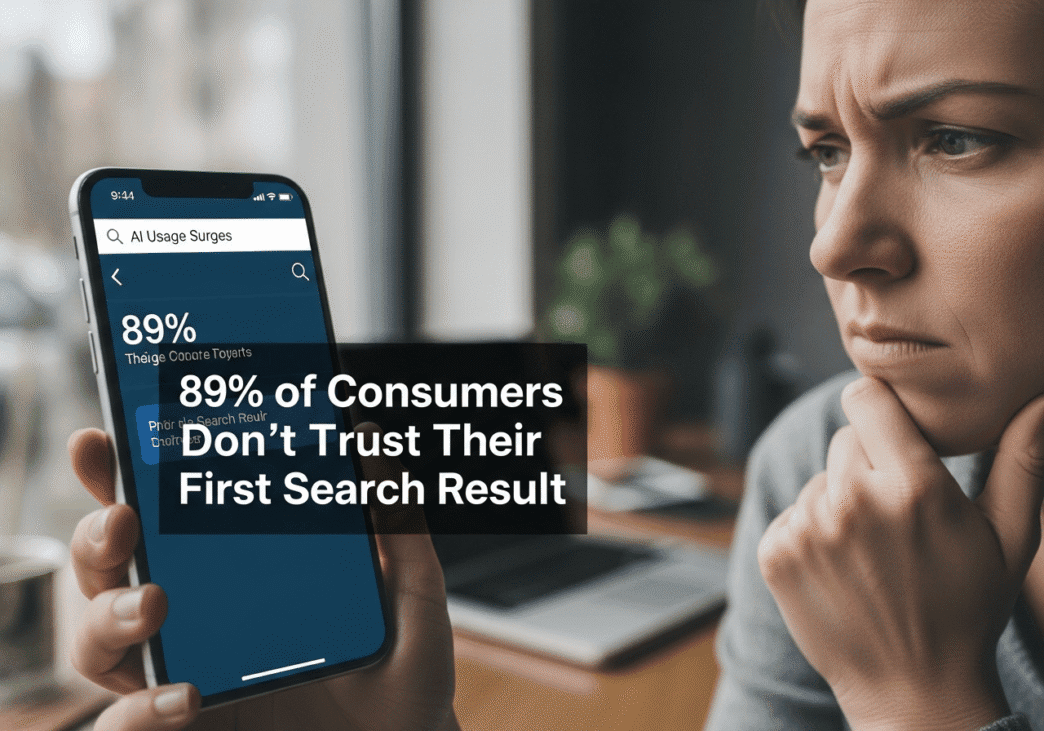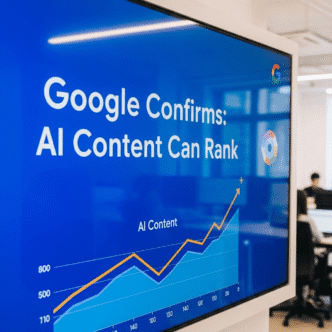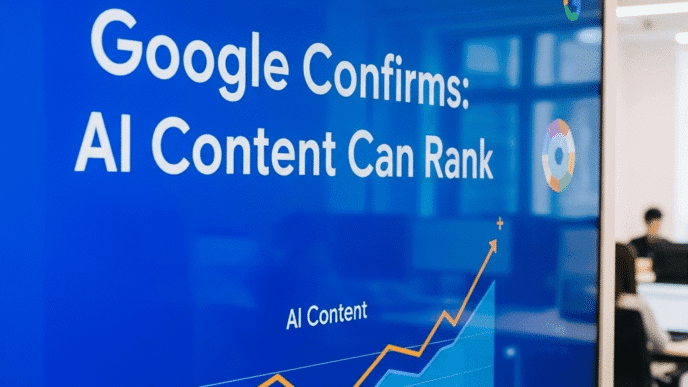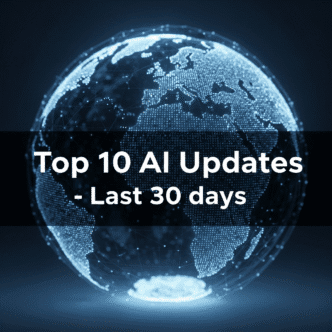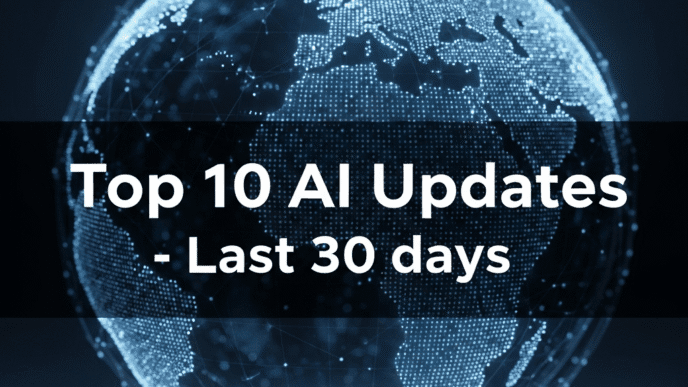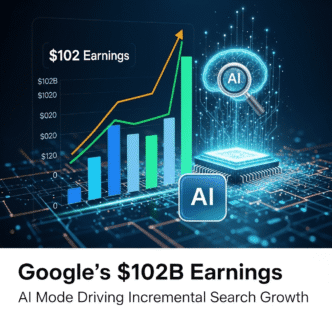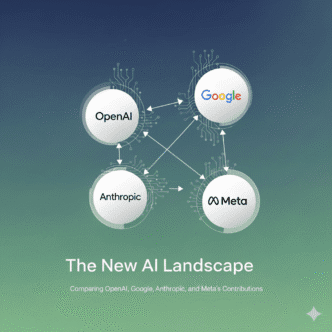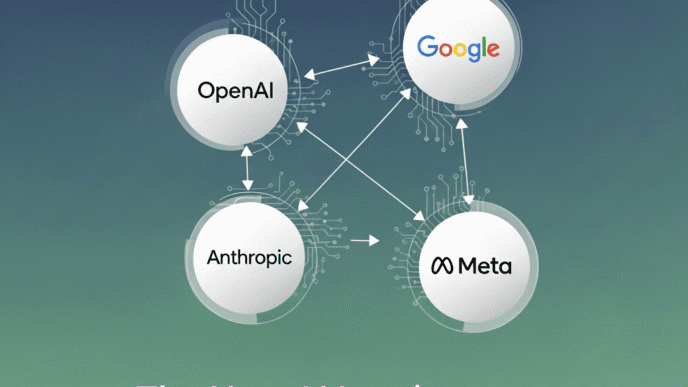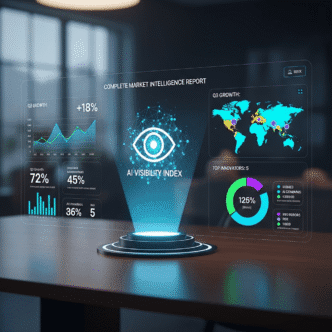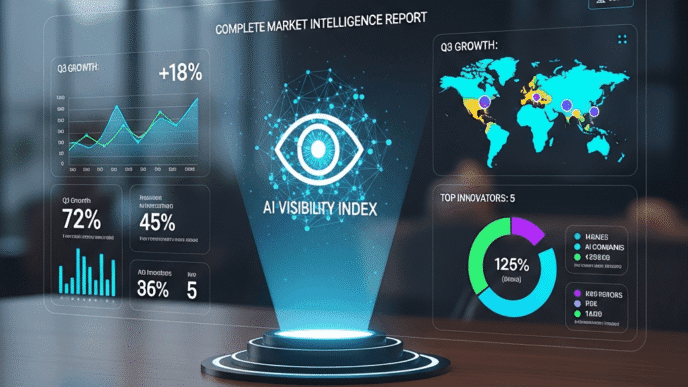The digital search landscape is transforming dramatically. New data reveals consumer trust in search results has hit a critical low while AI-powered search adoption accelerates. This fundamental shift is forcing brands to rethink their entire approach to digital visibility and consumer engagement.
As consumers increasingly bounce between traditional search engines, AI chatbots, social media platforms, and review sites before making decisions, the path to purchase has become more complex and fragmented than ever before. The implications for marketers, SEO professionals, and brands are profound and demand immediate strategic adaptation.
Table of Contents
ToggleThe Trust Crisis: A Seismic Shift in Consumer Behavior
According to a Yext survey, only 11% of U.S. consumers trust the first tool they use when searching online. Nearly 9 in 10 Americans actively double-check their search results across multiple platforms.
This staggering trust deficit represents a fundamental change in how people interact with digital information. Where consumers once accepted search engine results at face value, today’s digitally-savvy users approach online information with healthy skepticism, cross-referencing answers across multiple sources before accepting them as reliable.
The implications are clear: brands can no longer depend on a single touchpoint to capture consumer attention and trust. The modern consumer journey has evolved into a multi-platform verification process, where visibility on one channel is merely the beginning of a much longer engagement cycle.
The Numbers Behind the Transformation
The Search Engine Land report reveals critical trends that paint a picture of an ecosystem in rapid transition:
Traditional Search Maintains Lead, But Faces Growing Competition:
- 45% of consumers still start product research on traditional search engines like Google
- However, 15% now begin their journey with AI tools—a significant emerging segment
- 14% start with review sites, highlighting the importance of social proof
- 62% continue to rely on traditional search for sensitive topics requiring accuracy
- 60% use conventional search engines for everyday queries
These numbers show that while Google and other traditional search platforms remain dominant, their monopoly on consumer attention is eroding. The rise of AI tools and review platforms as primary starting points signals a diversification of search behavior that marketers cannot ignore.
AI Adoption Accelerates at Breakneck Speed:
- 73% of respondents have increased their use of AI-powered search tools in the past year alone
- 45% now use AI search tools daily—nearly half of all consumers
- 54% leverage AI specifically for research purposes
- 48% use AI for generating creative ideas and exploring possibilities
- 43% employ AI for analysis and deeper understanding of topics
The velocity of AI adoption is remarkable. In just one year, AI-powered search has moved from novelty to necessity for a significant portion of consumers. Daily usage rates approaching 50% suggest this is not a passing trend but a fundamental shift in information-seeking behavior.
Social Media Emerges as Critical Discovery Channel:
- 52% use social media platforms to find and evaluate reviews
- 48% turn to social for local business recommendations
- 47% seek how-to guidance and tutorials on social platforms
Social media has evolved far beyond entertainment and connection—it has become a primary research tool. Consumers increasingly trust peer recommendations and user-generated content over traditional advertising and even search results, making social presence essential for brand visibility.
Six Consumer Search Personas Reshaping Digital Discovery
Yext’s research identified six distinct consumer types that brands must understand and target:
- The Traditionalist (24%) – Trusts established search engines for reliable, structured answers. This largest segment values authority, credibility, and the familiar hierarchy of search results. They prefer Google, Bing, and other mainstream platforms.
- The Price Shopper (21%) – Prioritizes deals and efficiency above all else. These consumers use search primarily to compare prices, find discounts, and maximize value. They’re less concerned with brand storytelling and more focused on bottom-line savings.
- The Explorer (18%) – Uses AI to dive deep into new ideas and connections. This segment embraces emerging technology, asking complex questions and seeking nuanced answers that traditional search might miss. They appreciate AI’s ability to synthesize information across multiple sources.
- The Creator (15%) – Relies on AI for brainstorming and creative problem-solving. Predominantly Gen Z users, this group sees AI as a collaborative partner for generating ideas, exploring possibilities, and pushing creative boundaries.
- The Social Proof Seeker (14%) – Needs validation from reviews, ratings, and influencer endorsements before making decisions. Trust is earned through community consensus rather than official sources or search rankings.
- The Accidental Searcher (8%) – Discovers products and information serendipitously through social browsing rather than intentional searching. These consumers don’t start with a query—they stumble upon solutions while scrolling through their feeds.
Understanding these personas is crucial for developing targeted content and optimization strategies. A one-size-fits-all approach no longer works when consumer search behavior has fragmented into six distinct patterns, each requiring different engagement tactics.
Expert Analysis: The Data Imperative
Mark Kabana, VP of Data Innovation at Yext, told Search Engine Land: “Structured, machine-ready data is your only shot at being chosen – not just seen.”
This statement cuts to the heart of the modern search challenge. In an era where AI tools mediate an increasing percentage of consumer discovery, brands must ensure their information is not just human-readable but machine-interpretable. Unstructured content, vague descriptions, and inconsistent data become invisible to AI systems that power modern search experiences.
The distinction between being “seen” and being “chosen” is critical. Traditional SEO focused on visibility—getting your link on page one of search results. But in a world where consumers verify information across multiple platforms and AI tools synthesize answers from numerous sources, visibility is merely table stakes. Being chosen requires trust, consistency, and data quality across every digital touchpoint.
Brands must invest in structured data markup, maintain consistent NAP (Name, Address, Phone) information across platforms, optimize for voice and conversational search patterns, and ensure their content can be easily parsed and understood by AI systems. This technical foundation is no longer optional—it’s the price of admission to the modern search landscape.
The Purchase Paradox: AI for Exploration, Traditional Factors for Conversion
The research reveals a fascinating behavioral pattern: while AI excels for research and exploration phases, consumers still rely heavily on traditional decision factors—price comparisons, peer reviews, and detailed product specifications—when actually making purchases.
This creates a bifurcated consumer journey:
Phase 1: Discovery and Research (AI-Driven)
- Consumers use AI to explore options, understand categories, and generate ideas
- Questions are open-ended: “What are the best sustainable hiking boots?” or “How do I choose a laptop for video editing?”
- AI’s strength lies in synthesizing information and providing contextual understanding
- Brands need AI-optimized content that answers conversational queries
Phase 2: Validation and Purchase (Traditional-Driven)
- Consumers switch to traditional search, reviews, and comparison sites
- Questions become specific: “Nike Pegasus 40 price comparison” or “MacBook Pro M3 reviews”
- Trust is established through verified reviews, ratings, and transparent specifications
- Brands need strong SEO, review management, and detailed product information
This two-phase journey means brands cannot choose between AI optimization and traditional SEO—they must excel at both. Neglecting either phase leaves money on the table and cedes competitive advantage to more adaptable competitors.
Strategic Implications for Brands and Marketers
The fragmented search landscape presents both unprecedented challenges and significant opportunities for forward-thinking brands:
The Challenge: Multi-Platform Complexity
Gone are the days when a strong Google ranking guaranteed visibility. Today’s brands must maintain:
- Optimized presence across traditional search engines
- AI-friendly structured content that feeds large language models
- Active, authentic social media engagement
- Comprehensive review management across multiple platforms
- Consistent information across every digital touchpoint
This complexity requires significantly more resources, coordination, and technical sophistication than traditional SEO demanded.
The Opportunity: Competitive Differentiation
However, this complexity also creates opportunity. Most brands are still operating with outdated, single-channel strategies. Early adopters who successfully navigate multi-platform optimization gain substantial advantages:
- First-mover advantage in AI search: Brands that optimize for AI discovery position themselves ahead of competitors still focused solely on traditional SEO
- Trust through omnichannel consistency: Consumers verify across platforms—consistent, accurate information builds the trust that converts browsers into buyers
- Demographic segmentation: Different personas use different tools—brands can target specific consumer types through channel-specific strategies
The brands that succeed in this new landscape will be those that view fragmentation not as a problem but as an opportunity to meet consumers wherever they prefer to search.
Survey Methodology and Data Integrity
The findings are based on research conducted by Researchscape International on behalf of Yext between March 20 and April 6, 2025. The study surveyed 2,237 adults across the United States, United Kingdom, France, and Germany, with a weighted sample of 1,057 U.S. respondents forming the basis of the U.S.-specific findings reported here.
All participants met specific qualification criteria: they had made at least one online purchase in the three months preceding the survey and had used voice or conversational AI to find information online. This ensures the sample represents digitally-engaged consumers who are actively participating in modern search behaviors.
The international scope of the study provides valuable context, suggesting these trends extend beyond U.S. borders and represent global shifts in consumer search behavior.
The Road Ahead: Adaptation is Not Optional
With consumer trust at historic lows and AI adoption surging, brands face a stark reality: being visible is no longer enough. Success now requires being discoverable, verifiable, and trustworthy across a complex ecosystem of traditional search engines, AI tools, social platforms, and review sites.
The transition period we’re experiencing now won’t last long. Consumer expectations are rising rapidly, and brands that lag behind in multi-platform optimization will find themselves increasingly invisible to significant segments of their target audience. The Traditionalists may still find you through Google, but the Explorers, Creators, and Social Proof Seekers are using entirely different discovery methods.
The question is no longer whether to adapt to this fragmented search landscape—it’s how quickly you can execute the necessary changes before competitors gain insurmountable advantages. The brands that win will be those that recognize this moment as a fundamental inflection point and act decisively to position themselves across every channel where their customers are searching.


